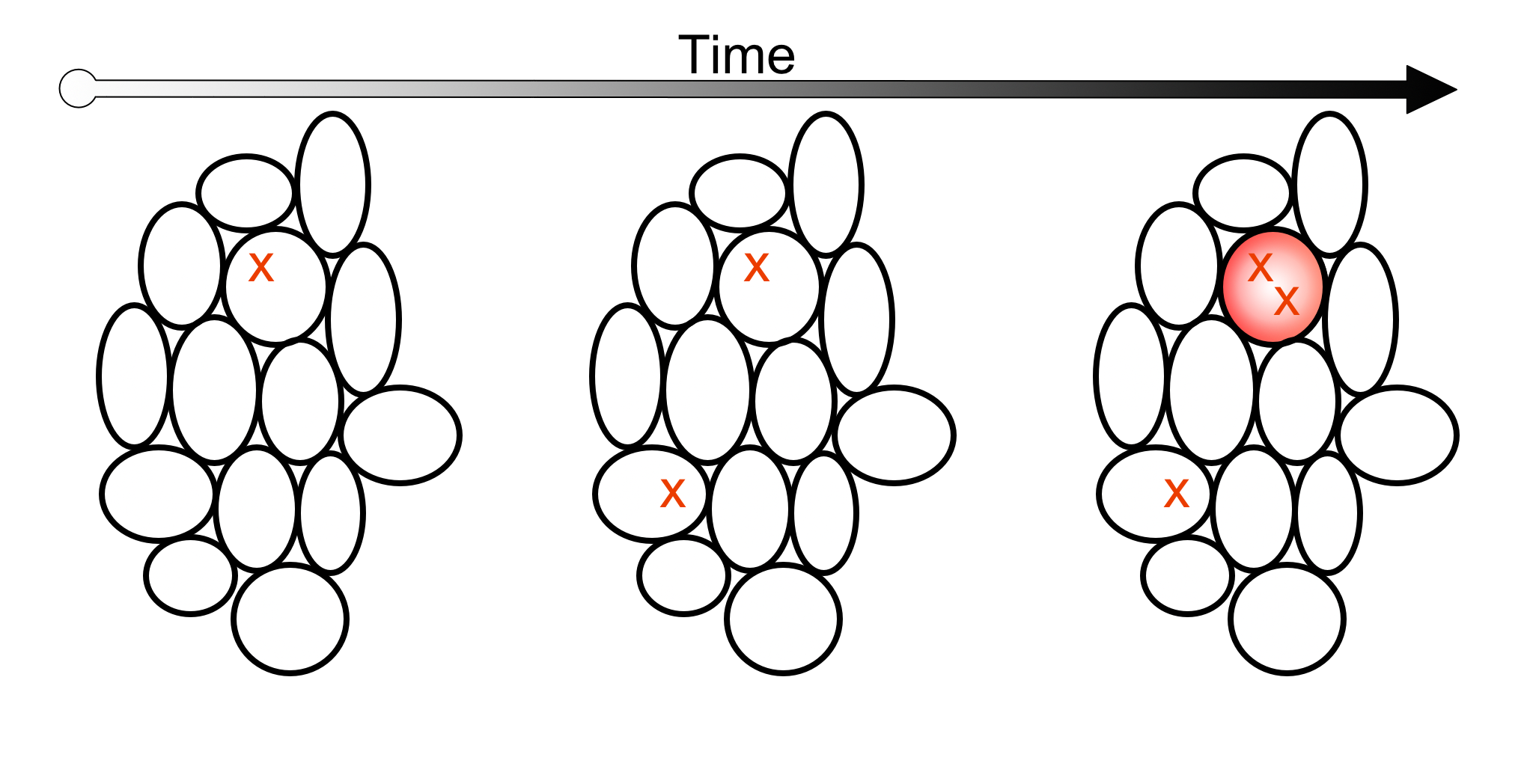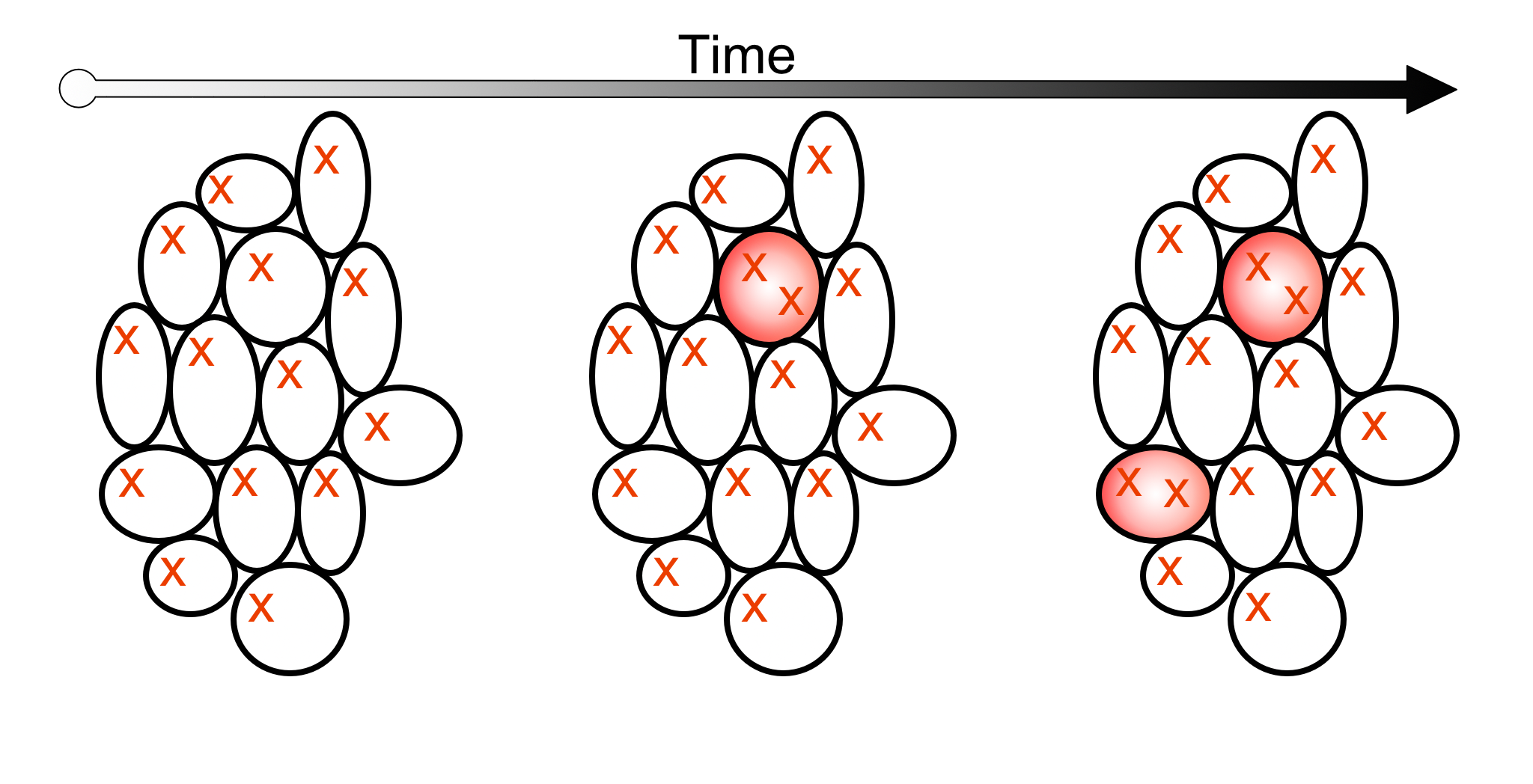The Genetics of Cancer
Cancer– one of the most terrifying diseases we face today. Your own cells selfishly growing uncontrollably, with no regard for the effect they have on the body as a whole.
When we talk about cancer, we’re really talking about a group of hundreds of different diseases, but they all stem from the same cause: genetic changes. DNA controls the growth, life and natural death of our cells. Changes to the DNA responsible for those systems allow cells to escape those controls and grow, replicate, and live indefinitely.
Causes of DNA Changes
Our bodies are constantly managing DNA damage. We tend to think this damage is caused by things from our environment wreaking havoc on our cells— cigarette smoke, nuclear radiation, too much sunlight, smog, unhealthy foods. While this is true, a lot of DNA damage comes from the normal wear and tear of being alive. Some of the chemicals that we need in our cells to survive, like oxygen, can damage our DNA. When cells replicate, they have to make a copy of their DNA to give to the new cell. This copying process is imperfect, and typos happen all the time. Our cells have systems in place to repair damage and fix typos, but some changes manage to slip through the cracks and stay in that cell-line forever.
Keeping Damage at Bay
The systems that keep the growth of cells in check are very important to the survival of an individual. If the first bit of damage to one of these systems caused cancer, we would all be riddled with tumors at a very young age. Instead, we have backups, and backups of backups, that help keep these errors at bay. It usually takes an unlucky combination of many errors within the same cell to make those systems fail and cancer to occur. This is why cancer occurs most often in older people— they have had more time to accumulate more errors in more of their cells.

Types of DNA Changes
Most of the DNA damage we accumulate in our cells ends with us. The DNA errors within the mole on your arm don’t get passed down to your children. These are what we call “somatic mutations”— changes that happen in non-reproductive cells throughout your lifetime. Changes that happen in reproductive cells (egg and sperm) are different. Changes in the DNA of these cells can get passed down to the next generation, and when they do, they end up in every cell of their body. We call these “germline mutations.”
If someone inherits an error within one of these cancer prevention systems, they’re placed at a disadvantage. Since the error is present in all of their cells, they have to rely more heavily on their other backup systems. People with these germline changes are prone to developing cancer at younger ages, and may develop more than one type of cancer in their lifetime. We think that around 10-20% of cancers may be caused by a germline mutation.

Genetic Testing for Cancer
There are many types of genetic tests available for oncology today. Some tests look at the DNA within the tumor cells themselves to find the mutations they carry. These types of tests can help diagnose which type of cancer a person has, and may help determine which treatments might work best in fighting it.
Treating a cancer effectively means killing the cells that harbor these dangerous mutations. Sometimes genetic tests are repeated during treatment to make sure the mutations in the original cancer are going away. This is especially helpful in leukemias (blood cancers) where very sensitive tests can detect these mutations in tiny numbers of cells in the blood. A decrease in the number of cells carrying that mutation indicates the treatment is working, while an increase can mean that the cancer is growing and new treatments may be required.
Looking at the DNA of a tumor can tell you what mutations are present, but it can’t always tell you if any of this mutations were inherited (germline). To do that, you have to look at non-cancerous cells in the body to see if any of the mutations are present there, too. If they are, then that can have big implications for that person’s risk of developing other cancers, and can mean their family members may be at risk as well.
Genetic Counseling for Hereditary Cancer
Many genetic counselors specialize in cancer genetics and can help identify individuals and families who may harbor one of these types of germline mutations. By looking at the cancer history in the family and the ages at which they were diagnosed, genetic counselors can identify how likely an individual is to have inherited a hereditary cancer syndrome, and which genes are most likely to be the culprit. They help guide patients through the genetic testing process and ensure they understand their results.
Once a genetic change in an individual has been identified, other family members can choose to be tested for that change as well. Having that information can be powerful, as there may be options available that can help reduce cancer risks or screenings available to detect it at an earlier stage.
As new innovations genetic testing become available, our understanding of cancer grows. New treatments are being developed that are tailored to the specific genetic mutations found in the tumor. New screening and preventative measures are being developed based on our knowledge of genetics. Though we still have a long way to go, it’s exciting to see progress being made in fighting this terrible disease.
